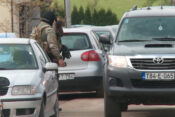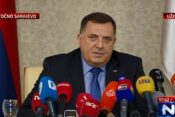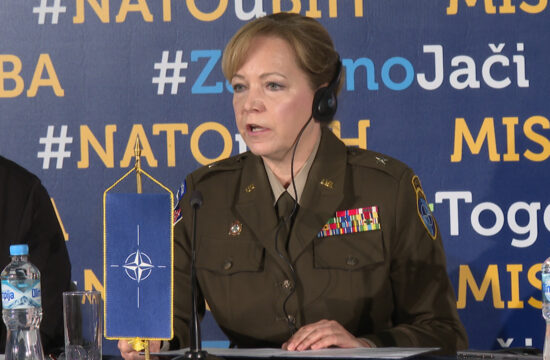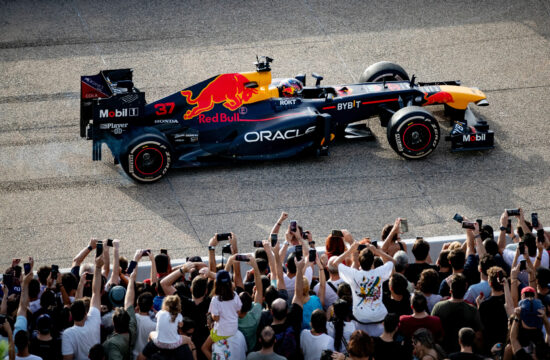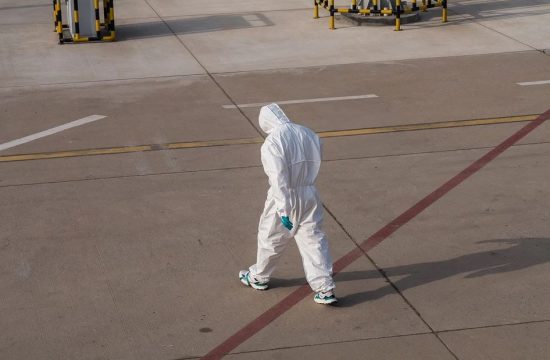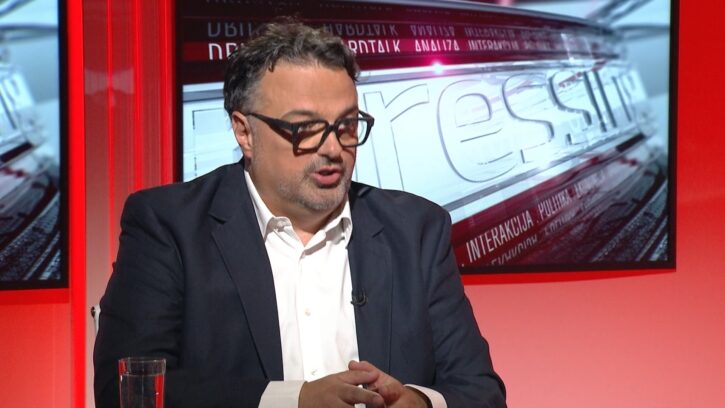
In the light of the recent murders in Bosnia’s Serb-majority region, common people ask themselves whether they are safe and whether the police is really serving the citizens, while people who disagree with those in power are branded as enemies, the chief editor of ‘Buka’, Aleksandar Trifunovic, told N1 on Wednesday.
“No normal person would wish for violence to continue and repeat itself and become common. Societies in which violence is common are not societies where anything normal can develop,” said Trifunovic, who runs the Banja Luka-based news portal.
“Those are societies in which people fear for their lives and the lives of their families much more than usual. A wary society is created which develops various doubts,” he added.
Trifunovic focused on the murder of Slavisa Krunic, a Bosnian Serb businessman who was assassinated in Banja Luka, the administrative centre of Republika Srpska (RS), one of the two semi-autonomous entities within the country.
The owner of several enterprises was killed alongside his bodyguard in what appeared to be an ambush near his house. Police arrested several suspects, but one of them, Zeljko Kovacevic, was also killed in the shootout that ensued during the attack.
Kovacevic was supposed to be in prison but was free due to a procedural error by a court in Banja Luka.
“What we should be worried about is that one of the perpetrators was a person who should have been in prison for another five years. That person should have been removed from the streets,” Trifunovic said.
He compared the circumstances around Krunic’s murder with the way RS authorities have been cracking down on members of ‘Justice for David’ – a group of citizens which has for more than a year been demanding that authorities solve the 2018 murder of 21-year-old David Dragicevic and bring the perpetrators to justice.
‘Justice for David’ turned into the largest anti-government protest Republika Srpska had ever seen.
“We have a situation where police are breathing down the necks of members of Justice for David – kids sitting at the town square in groups. Young men and women who are good students, who have no criminal records,” Trifunovic said.
“Did they also breath down the necks of the people who committed the murder the other night?” he asked, adding that authorities “didn’t even pay attention to what they are doing.”
Trifunovic said that those in power in Republika Srpska “put serious targets on the head and back” of people who disagree with them.
This kind of ‘labelling’ of political opponents has been going on with impunity and came from some “serious people,” such as professors, deans of universities and the public broadcaster, he said.
“The magazine which I manage showed up on a list of enemies of Republika Srpska in a pamphlet which the ruling party (in the RS) published. We pay taxes which are used for paying for books in which we are being labelled as enemies without providing any evidence for it,” he explained. “You live in danger that something might happen to you.”
According to the editor, all journalists live in some kind of fear today.
“An atmosphere in which someone can harm you without facing any consequences was created. I think that everyone should simply ask themselves if this kind of exposing yourself is worth it,” he said.
The political leaders in Bosnia “maintain an atmosphere in which the war is not over, and we need defence and protection,” he said, adding that “the armed conflict ended but the war continued in a different way.”
“How often do people mention the war? Why? Because it never stopped. We live in an unfinished conflict which is being extended with political means and the exodus is ever growing,” he said, referring to the massive emigration Bosnia is facing.
“A number of people say that poverty is not the reason they are leaving, but that they don’t want to lose their honour and again participate in a conflict. Their honour doesn’t let them participate in that and I completely understand them,” he said.
“We now have divisions between Serbs, Croats and Bosniaks,” Trifunovic described Bosnia’s ethnicity-centred politics and society.
“Within those three ethnic groups, we have another division between the ‘good guys’ and the ‘bad guys’. Then you have subdivisions – who are true (members of an ethnic group) and who are false,” he explained, adding that in such a social setting, “whoever is in power can enjoy it.”
He said that “bitter enemies” during an election campaign, in the end, enter the governing coalition, adding that politicians only get richer while the people become poorer and more afraid.
“This isn’t a fear for one's livelihood anymore – but for one’s life,” he said.
Trifunovic also spoke about Bosnian Serb leader Milorad Dodik, who is currently the Chairman of the Bosnia’s tripartite Presidency and the leader of the ruling party in Republika Srpska.
Dodik has for more than a decade been advocating for Republika Srpska to secede from Bosnia and for it to become part of neighbouring Serbia – which was also the goal of Bosnian Serb leaders during the 1992-1995 war.
But Trifunovic believes that Dodik “does not plan to take Republika Srpska out of Bosnia and never had such a plan” – as he never said how he intends to do that and in what way.
“At this moment he has a bit more than half of the votes (in the RS National Assembly) to make such a decision. He keeps avoiding to say what would happen the day after it secedes, what that would look like,” he said.
“If Milorad Dodik is mentioning it so much, then he should take the RS out. He should show how he plans to do that. He should face the consequences for that move as should all others who gave him such a legitimacy,” he added.

